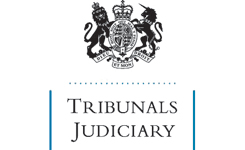|
Notes:
|
Reported as [2012] AACR 9.
Human rights – Article 14 discrimination – whether conditions for funeral payments unlawfully discriminate against prisoners
The claimant’s son died while she was serving a sentence of imprisonment. She applied for a funeral payment from the social fund in respect of his funeral. The Secretary of State refused her application on the ground that she was not in receipt of a qualifying benefit as required by regulation 7 of the Social Fund Maternity and Funeral Expenses (General) Regulations 1987 (since replaced, but not materially changed by regulation 7 of the 2005 Regulations). An appeal tribunal allowed her appeal. The Secretary of State appealed. It was common ground in the appeal that the Secretary of State’s decision had been correct under domestic law. The issue was whether the refusal of a funeral payment violated the claimant’s right under Article 14 of the European Convention on Human Rights (ECHR), not to be subjected to unlawful discrimination. The Upper Tribunal judge identified that only a very small proportion of convicted prisoners would be eligible for the qualifying benefits, but concluded that regulation 7 did not directly discriminate against prisoners, since there was no express rule denying prisoners an entitlement to some of the benefits, and that if there were indirect discrimination, it would be proportionate to the objective of regulation 7. The claimant appealed to the Court of Appeal. Before the Court of Appeal the Secretary of State accepted that both Article 8 and Article 1 of the First Protocol in the European Convention on Human Rights were engaged and that the funeral payment scheme was indirectly discriminatory against prisoners. The Secretary of State argued that the discrimination was justified as it would be administratively complicated and costly to establish a separate mechanism for means-testing benefits, and that the change would have to have an impact on a wider group of potential beneficiaries and would be disproportionate given that the state made alternative provision by requiring public authorities to provide a funeral. It had been contended by the Secretary of State that depriving many prisoners of access to funeral payments formed part of their punishment, but that contention, which was rejected by the Upper Tribunal judge, was withdrawn by the time the case was heard by the Court of Appeal.
Held, dismissing the appeal, that:
1. there was no direct discrimination, as being a prisoner did not in itself exclude the claimant from entitlement to all qualifying benefits, and it did not therefore exclude her from entitlement to a funeral payment. Being a prisoner was not “the reason why” she was refused a funeral payment, nor could it be said that “but for” being a prisoner she would have qualified: Shamoon v Chief Constable of the Royal Ulster Constabulary [2003] UKHL 11; [2003] 2 All ER 26, James v Eastleigh BC [1990] 2 AC 751, Stec v United Kingdom (2005) 41 EHRR SE18 followed (paragraphs 18 to 19);
2. it was clearly correct that the funeral payment scheme was indirectly discriminatory against prisoners in that it was more difficult for a prisoner than a non-prisoner to qualify for such a benefit (paragraph 20);
3. discrimination on grounds of prisoner status was plainly discrimination of a non-suspect kind, falling within “other” status in Article 14, and so merely required some rational justification and not the intense scrutiny demanded by discrimination on the ground of an inherent characteristic, like race or sex: Shelley v UK (2008) 46 EHRR SE16 cited (paragraphs 21 and 22);
4. while the judiciary should accord the legislature or the executive a wide margin of appreciation or discretion when considering discrimination in the arena of social policy, if the Secretary of State relies on administrative convenience and “bright line” rules he must show some “seriously adverse consequences” to justify the discrimination: Francis v Secretary of State for Work and Pensions [2005] EWCA Civ 1303; [2006] 1 WLR 3202, also reported as R(IS) 6/06, followed (paragraphs 23 to 27);
5. to create a separate means-test for funeral payments for prisoners, whether alone or with other excluded groups, would be a significant change from the simple scheme introduced by Parliament in 1987, with significant ramifications in delay and expense, and the Secretary of State had therefore established a rational justification for the discriminatory treatment of most of the prisoners who seek funeral payments (paragraphs 33 to 35).
|
